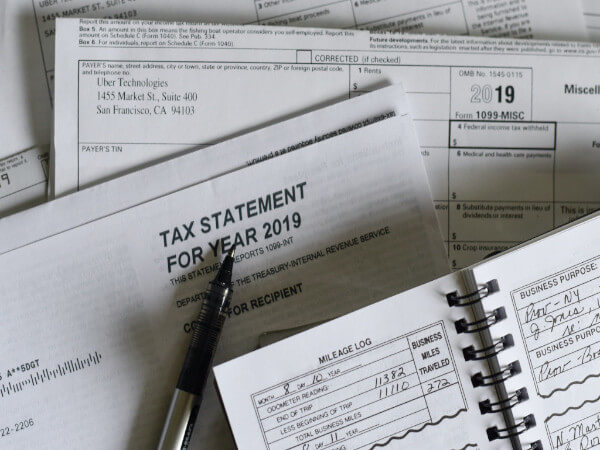Author: Randy Reid
Building Your Network: You’ll Regret Not Starting Sooner
Here are a few reasons to make building your network a priority early in your legal career. I spent the first four years of my legal career at a “just keep your head down and do good work” law firm where billable work rained down on everyone. It’s all I focused on. There seemed to be little incentive to do otherwise. And it may have been fine if all I wanted was to work at one law firm my entire career. Twenty years later, after many twists and turns in my career, it’s easy to see the illogic of my thinking. Of course, I should have focused on building my network, not just billable hours, from day one. It’s something every associate, no matter how junior, should prioritize. After all, there is nothing more powerful than a strong network. Short-Term Thinking Leads to Delayed Network Building For a law firm associate, the primary return on investment from high billable hours is fairly obvious: an increase in compensation. At the same time, it’s often fleeting. The benefits of a powerful network, on the other hand, are lasting — and far more valuable in the long run — because building a practice is nearly impossible without a network of allies. But here’s the rub: The ROI from a network, like that of a monetary investment, takes time to compound. So you can’t wait until you need a network to build one because a network must be nurtured. If you try to build a network in a hurry, it will come across as transactional — you looking for something but not in a position to give anything in return. Here are a few of the reasons to make building your network a priority: We are in an era of plentiful work and a
Read MoreWhat Does It Take to Be a Great Lawyer? The Competency of Curiosity
Law students and young lawyers often ask more seasoned lawyers what it takes to be a great lawyer. There are lots of answers to that difficult question, though admittedly, it may depend on who you ask, how long they’ve been practicing, and their practice area. For me, an often overlooked answer is the competency of being intellectually curious and asking questions. Being intellectually curious is a skill that can easily set baby lawyers apart from their contemporaries. This Common Faulty Presumption Can Stunt Your Growth as a New Lawyer Most new lawyers tend to lean hard into exuding only confidence and capability. As a result, they feel that asking questions is somehow out of bounds because it is presumed to be seen as stupidity. This faulty presumption makes it hard for young lawyers to ask clarifying questions or “why” questions when given an assignment because they are afraid to look like they don’t know what they’re doing. Rather, when given a new assignment, baby lawyers tend to furiously write copious notes, receiving the assignment as “marching orders,” only to take them to their office, close their door, and expend a lot of energy and stress trying to figure out, first, what their actual assignment is, and then second, how to execute in the time allotted. There can be a similar pattern when turning work product in, where young lawyers simply submit their work and don’t ask questions or for feedback. Or when they are given feedback, they sit quietly and nod profusely, eager to show that they “get” it, even if they don’t. This pattern tends to repeat itself over the first year or two and can be quite stunting to a young lawyer’s growth. The All-Important “Why” What’s missing in this common pattern is the competency of intellectual curiosity
Read MoreTechnology Doesn’t Replace Your Law Firm’s Admin Assistants
Let attorneys be attorneys and leave the admin work to those who get paid to get it done. It’s a battle as old as WordPerfect versus Word: Should lawyers type? Since lawyers have keyboarding skills, how many can be assigned to one admin assistant? Two? Three? Five? Imagine all the cost savings … right? Wrong. Instead, imagine all the headaches. All the extra stuff that you, the lawyer, get to do — or worse, pile up because you are too busy to handle it. Am I saying lawyers shouldn’t know how to do administrative work? No. I’m saying you shouldn’t have to do it. The Shrinking Admin Assistant: How Did We Get Here? Long ago, before lawyers began worrying that robots would replace them, tech companies with war chests flush with capital started pitching the many ways “technology” removes the need for assistants. Like assistants were the problem. Here’s the disconnect: Technology requires input — usually keyboarding, but also formatting, calculating, and searching. Whatever the input, it should not be done at the highest cost to the firm — lawyers’ time — or to the detriment of lawyers’ mental health and overall well-being. According to the “2021 State of U.S. Small Law Firms” report from Thomson Reuters, the proportion of lawyers’ time spent practicing law has dropped to a new low of only 56%, barely half of their time. The report, released this week, says that lawyers are increasingly concerned about how managing administrative tasks impacts their ability to practice law. They now rate it as their top concern. This is why, when I hear that a tech “replaces” the need for a human in the process of law firm operations, I call it what it is: BS sales tactics. Three Reasons Admin Staff Are Integral to Your Law Firm’s Operations Here
Read MoreLet Lawyers Lawyer: Tech Doesn’t Replace Your Admin Assistants
Let attorneys be attorneys and leave the admin work to those who get paid to get it done. It’s a battle as old as WordPerfect versus Word: Should lawyers type? Since lawyers have keyboarding skills, how many can be assigned to one admin assistant? Two? Three? Five? Imagine all the cost savings … right? Wrong. Instead, imagine all the headaches. All the extra stuff that you, the lawyer, get to do — or worse, pile up because you are too busy to handle it. Am I saying lawyers shouldn’t know how to do administrative work? No. I’m saying you shouldn’t have to do it. The Shrinking Admin Assistant: How Did We Get Here? Long ago, before lawyers began worrying that robots would replace them, tech companies with war chests flush with capital started pitching the many ways “technology” removes the need for assistants. Like assistants were the problem. Here’s the disconnect: Technology requires input — usually keyboarding, but also formatting, calculating, and searching. Whatever the input, it should not be done at the highest cost to the firm — lawyers’ time — or to the detriment of lawyers’ mental health and overall well-being. According to the “2021 State of U.S. Small Law Firms” report from Thomson Reuters, the proportion of lawyers’ time spent practicing law has dropped to a new low of only 56%, barely half of their time. The report, released this week, says that lawyers are increasingly concerned about how managing administrative tasks impacts their ability to practice law. They now rate it as their top concern. This is why, when I hear that a tech “replaces” the need for a human in the process of law firm operations, I call it what it is: BS sales tactics. Three Reasons Admin Staff Are Integral to Your Law Firm’s Operations Here
Read MoreLocal Flavor: MyCase Expands Its Integration Options with CalendarRules and Smith.ai
MyCase, a long-standing case management software provider, has established itself as an effective all-in-one solution for law firms, jam-packed with in-house features. Thus, MyCase has traditionally restricted the number of integration partners to only the most popular and ubiquitous technology platforms, like Microsoft Office and MailChimp, to name two. Now, in step with the growth of the legal tech space overall, the MyCase universe is beginning to expand. MyCase is still an effective standalone platform for law firms, but MyCase will integrate with other top-shelf technology partners when the opportunity presents itself. And so, opportunity has knocked: MyCase recently increased its slate of integration offerings by two, adding CalendarRules and Smith.ai to its stable. Let’s take a look at each, in turn. On the Docket: MyCase Adds CalendarRules Integration CalendarRules is a calendar add-on feature that pulls and calculates deadlines for specific courts around the United States. If there’s one thing lawyers worry about more than revenue, it’s malpractice claims; and, one consistent bogeyman invading those nightmares is missed court deadlines. CalendarRules makes it easier to manage court deadlines, including updates to rules, while largely removing human error from the equation. Now, MyCase users can add CalendarRules features to the MyCase calendar. Once the integration for CalendarRules has been installed through MyCase, users simply select the “Add Court Rule” option from the calendar or a case page to add CalendarRules functionality. From there, a handy wizard guides the user through the setup of the particular ruleset, through the selection of a case type, relevant jurisdiction, and rules triggers. Once that’s done, the user selects “Calculate,” and the relevant court deadlines are added to the MyCase calendar. (Note that available jurisdictions are based on the user’s underlying CalendarRules subscription.) MyCase users also have additional functionality available to them, in tweaking these
Read MoreAlteration of date of birth in service records cannot be claimed as of right-SC
The Apex Court, while hearing an appeal, made an observation that any changes in the date of birth, specifically in the service records, could not be claimed as of right. The bench denied the existence of this right even in cases of compelling evidence placed before the court. In the instant case, the employee/respondent of the Karnataka Rural Infrastructure Development Limited filed a plea requesting its employer to change his date of birth. Later, he also filed a suit for declaration regarding his date of birth, however, the same had been dismissed by Trial Court. Thereafter, on an appeal to High Court, the bench allowed the appeal and decreed the suit. Aggrieved by the order of High Court, the corporation approached the Supreme Court wherein it contended that the right claimed by employee could not be provided and the advantage of alteration could not be extended to a State-government servant. The counsel on behalf of corporation backed its argument by contending that the request could’ve been allowed, provided the employee had made an application within three years from which his birth date and age had been accepted and recorded in the service records, or within one year from the date of commencement of Karnataka State Servants (Determination of Age) Act, 1974, whichever appeared to be later. The counsel further submitted that in the instant case, the employee had filed the application for the first time after the lapse of 24 years. The apex court bench accepted the contentions of corporation and observed that such applications could be processed only in accordance with the relevant provisions. The same could not be entertained when filed after a long delay or when the employee had reached the age of superannuation. The bench further observed that the application for alteration in date of birth
Read MoreSummoning and detaining order should be backed by reasonable crime registered against a person- SC
The Apex Court, while setting aside High Court’s order, made an observation that a person could not be summoned and detained in absence of a crime registered against him as the same would be violative of natural principles of justice. In the instant case, the petitioner first approached Andhra Pradesh High Court and sought for relief against any arrest in absence of a notice under Section 41A of Code of Criminal Procedure. Earlier, his wife had lodged a complaint under Section 498A of Indian Penal Code. Even after the High Court passed an order in his favor, he had been forcibly taken and detained by the police officers. In furtherance to this, he filed a contempt case alleging the non-compliance of High Court order. The police officer who arrested him had been held guilty of contempt and later sentenced to three months of imprisonment. However, the same had been set aside by the division bench on the ground that no crime had been registered. The bench also placed reliance on the directions issued in the case of Arnesh Kumar v State of Bihar. The bench backed its order by observing that in absence of crime record, the question of arresting the writ petitioner would not arise. The Supreme Court, while hearing the appeal, observed that there had also been clear cut violation of directions issued in D.K. Basu v State of West Bengal. The bench reiterated the directions issued in the aforesaid cases and held that prima facie reason would be violation of basic principles instead of no crime being registered against the petition. The bench, however, modified the sentence awarded by the court from three months to 15 days of the responsible police officers. The post Summoning and detaining order should be backed by reasonable crime registered against a
Read MoreAmendment of Pleadings | Order VI Rule 17 [CPC]: A Critical Analysis
Maitreyi Choalla, a student of Gujarat National Law University explains the nuances of Amendment of Pleadings under Order VI, Rule 17 of Civil Procedure Code, 1908 bstract In most cases, a country’s judicial system is designed to uphold the rule of law. Considering this principle, parties in a civil suit enjoyed unrestricted access to modify their pleadings under Order VI Rule 17 of the Indian Civil Procedure Code, 1908. Concerns were brought to the Courts that such modifications or amendment of pleadings harmed the opposite party as well as slowed down the process of civil proceedings, resulting in piling up of cases. As a result, the Code of Civil Procedure (Amendment) Act, 1999 had removed this clause, However, this move witnessed a negative reaction by both law professionals and general populace. Therefore, the Code of Civil Procedure (Amendment) Act, 2002 had reinstated the same, albeit with a caveat. This study aims to explore these changes and assess the scope and judicial interpretation of amendment of pleadings in Civil procedure with a doctrinal legal research method by using primary sources like cases, statutes, legal commentary and reports. Keywords- Amendment of Pleadings, Civil Procedure Code 1908 Introduction The principle followed in Civil Procedural Law is that the Court procedures and rules are designed to achieve substantial justice. Order VI Rule 17 is an example of such procedural law that is designed to serve justice to the parties by giving them a chance to amend their pleadings where it appears to be necessary. The word ‘pleading’ in ‘amendment of pleadings’ can be understood by Order VI Rule 1 of the Civil Procedure Code(CPC), 1908. It defines a Pleading broadly `as a plaint or a written statement.[1] While a Plaint is a formal statement filed by a Plaintiff to substantiate his claim, similarly a
Read MoreEmployee who conceals facts, makes false declarations, not entitled continue service as a matter of right- SC
The Apex Court, while allowing the appeal, made an observation that an employee who made false declarations or suppressed material facts, like his involvement in a criminal case, should not be entitled to continue in service or be appointed as a matter of right. In the instant case, the employee had been employed by the Rajasthan Rajya Vidyut Prasaran Nigam Limited. At the time of employment, he had submitted a declaration during document verification wherein he admitted that neither any criminal case had been pending against him, nor had he been convicted by any court of law in a criminal case. Later, upon scrutiny, it had been found that he had been convicted in a criminal case and consequently had been terminated. Aggrieved by the termination order, the employee approached the High Court and challenged the order. The High Court relied upon the verdict given in the Avtar Singh Case [(2016) 8 SCC 471], quashed the termination order, and directed the reinstatement of employee along with consequential benefits. Thereafter, the employer approached the apex court where the employee-respondent contended that he had been extended the benefit provided under Section 12 of the Act, 1958 wherein a person is immune from disqualification owing to his conviction. The bench rejected the contention on the ground that the immunity could not be enjoyed in cases of false declaration which had been made by the employee-respondent. The bench further explained that even in case of acquittal, the person could not claim an appointment, as a matter of right, which he lost due to false declaration or concealment of facts. Moreover, it had been observed that the issue did not involve question of employee’s involvement in a dispute or whether he had been acquitted, rather, it revolves around the creditworthiness/credibility of employee. The employee by
Read MoreDelhi HC issues notice in a plea seeking action against Google Pay’s acts contravening Article 21
The Delhi High Court, while hearing a Public Interest Litigation, issued notice against Google Pay as it had been alleged that its acts amounted to unauthorized access and storage of users Aadhar details. In the PIL, the petitioner alleged that Google Pay, which acts like a united payment interface for all the banks, violates most vulnerable right of individuals’ safeguarded under Article 21 of the Constitution of India. Further, the petitioner alleged that the unauthorized access and storage by the application also violated Aadhar Act 2016, Banking Regulations Act 1949, and the Payments and Settlement Systems Act 2007. The petitioner, through his counsel, contended that the payment interface has not been registered or received license under the Payments and Settlement Act, 2007 in order to legally conduct business of payments and transactions. Moreover, information received from Reserve Bank of India stated that Google Pay had not attained the status of a registered bank, financial institution, or co-operative bank under the Act of 1949. It also had been submitted that the business activities of Google Pay had been operating in contravention of banking as well as payment laws. Even in the terms and conditions of the application, the petitioner pointed out that the company mentioned to store the payment instruction details of users. However, the UIDAI did not receive any application from Google Pay to allow it to access, store, or use users Aadhar details. The authority did not even receive any intimation from RBI regarding the permission to access the bank details of users, submitted petitioner. For the aforesaid issue, the Delhi High Court has issued notices and listed the matter for the month of November, 2021. The post Delhi HC issues notice in a plea seeking action against Google Pay’s acts contravening Article 21 appeared first on LexForti Legal
Read More







![Amendment of Pleadings | Order VI Rule 17 [CPC]: A Critical Analysis](https://www.itcse.org/wp-content/uploads/2021/11/Legal-Advising-4-2.jpg)






